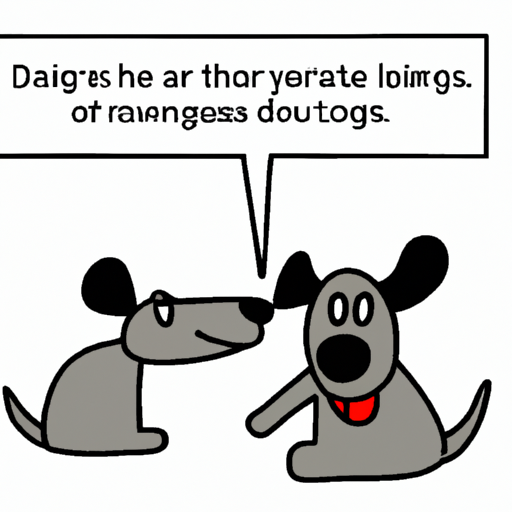Ever wondered why your furry friend occasionally nips at another dog’s ears? If you’re a dog owner, you’ve probably seen this behavior in action and perhaps found it perplexing, or maybe even worrying. This article will explain the reasons behind this seemingly strange canine behavior.
1. Understanding Dog Behavior
Understanding why dogs bite each other’s ears starts with understanding their behavior. Dogs, like their wolf ancestors, are pack animals. They use body language, sounds, and yes, even bites, to communicate with each other.
-
Play: Dogs often bite each other’s ears during play as a way to interact. It’s their version of a friendly pat on the back or a playful punch on the arm.
-
Dominance: Sometimes, a dog may bite another dog’s ear to show dominance or establish hierarchy within the pack.
-
Aggression: Although less common, ear biting can also be a sign of aggression. If the biting is accompanied by growling, barking, or other aggressive behaviors, it may be time to intervene.
2. How to Interpret Dog Play
Dog play can often look like fighting to us humans. While it’s true that play can sometimes escalate into something more serious, most of the time, dogs are just having fun. Here are some signs that your dog is just playing:
- Play bow: Your dog lowers its front legs and raises its back end.
- Relaxed body and wagging tail.
- Reciprocal play: The dogs switch roles, with the chaser becoming the chased, the biter becoming the bitten.
3. How to Recognize Aggression
While play is healthy, aggression is not. Here’s what to look for to distinguish between the two:
| Playful Behavior | Aggressive Behavior |
|---|---|
| Relaxed body | Stiff body |
| Play bow | Lunging |
| Switching roles | One dog always dominant |
4. What to Do If Your Dog is Biting Other Dogs’ Ears
If you notice that your dog is frequently biting other dogs’ ears, especially if it’s causing distress to the other dog, there are steps you can take:
- Redirection: Distract your dog with a toy or game.
- Training: Teach your dog commands like “leave it” or “gentle”.
- Consultation: If the problem persists, consult with a professional dog trainer or behaviorist.
5. Preventing Future Problems
Prevention is always better than cure. Socializing your dog from a young age can help them learn appropriate play behavior. Regular training can also reinforce positive behaviors and discourage negative ones.
Frequently Asked Questions (FAQ)
Q1: Is ear biting normal dog behavior?
A: Yes, it is often a sign of playful interaction.
Q2: When should I be concerned about ear biting?
A: If the biting is causing distress to the other dog, or if it’s accompanied by other signs of aggression, it may be a cause for concern.
Q3: What can I do if my dog won’t stop biting other dogs’ ears?
A: Try redirecting their attention with a toy or game, training them to respond to commands, or consulting with a professional.
Remember, as a caregiver, it’s important to keep a watchful eye on your dog’s interactions with others to ensure they’re always safe and enjoyable.



